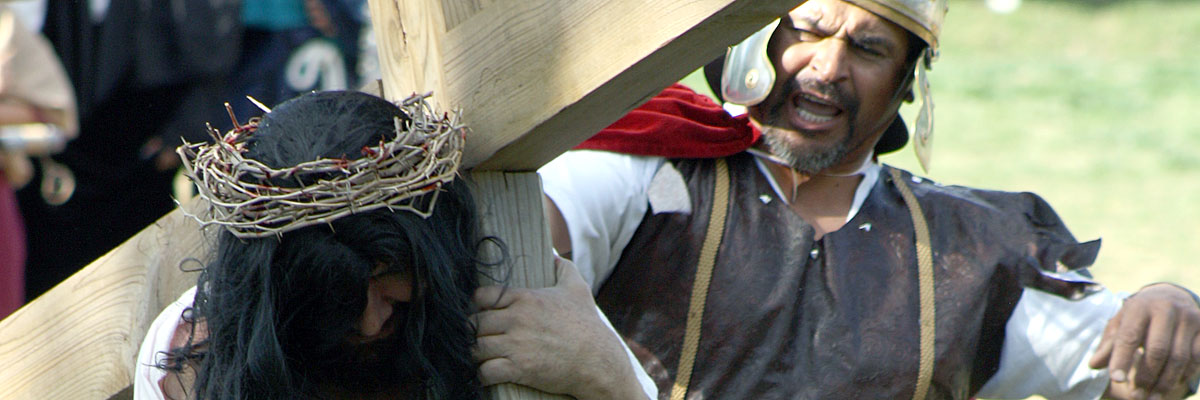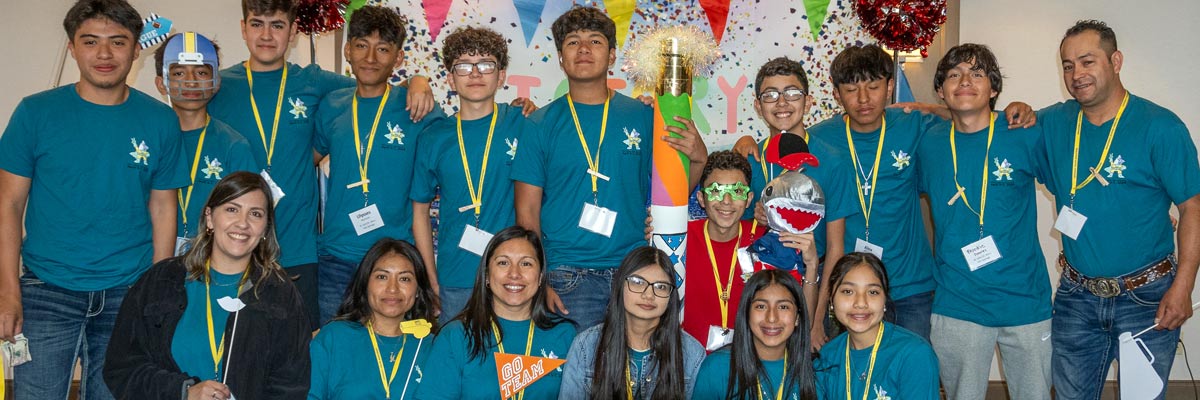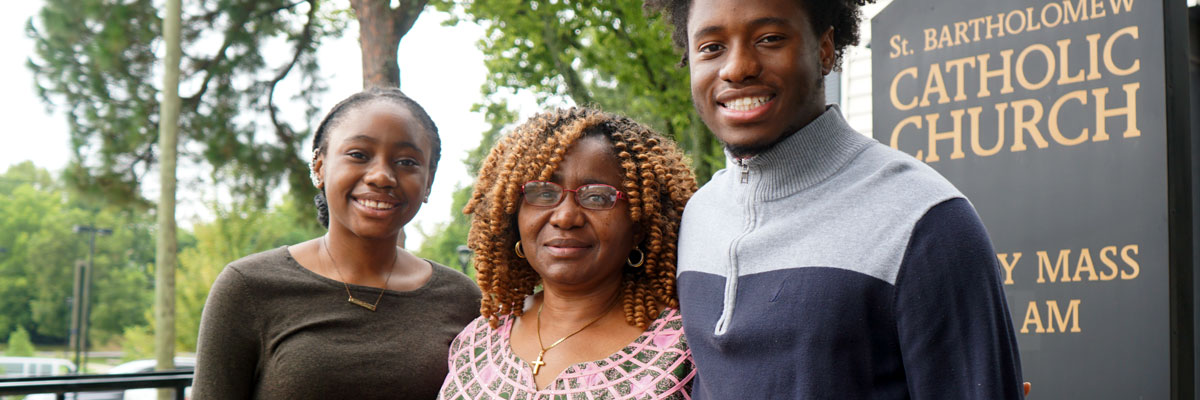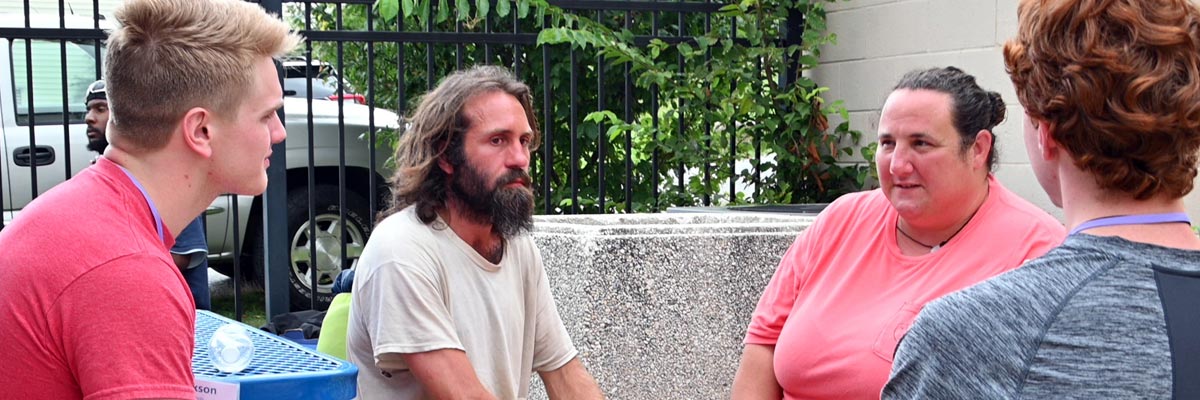Official Website of the
Catholic Diocese of Little Rock
Blessed Stanley Rother Catholic School Graduation 2019
Published: October 28, 2019
Bishop Anthony B. Taylor preached the following homily during a graduation Mass for sixth and ninth graders at the Blessed Stanley Rother Catholic School in Santiago Atitlán, Guatemala on Monday, Oct. 28, 2019. Special note: In Guatemala, the academic year runs from January to mid-October.

Bishop Taylor
This is the second time I have had the honor of being the “padrino” (Godfather/patron) of the graduation of this Catholic school of Blessed Stanley (Apla’s) Rother. The first time was in the first graduating class in 2007 — before some of you were born!
This was at the time when I was here to take testimonies as part of the investigation that eventually led to the beatification of Blessed Apla’s. That is why it occurred to me to share something with you today that you may not know about Blessed Apla's.
Since this school was named in his honor, what kind of student was he and what can we learn from him about the importance of education? I can answer this question because I worked on his cause of canonization and part of the process required me to investigate the history of his life, including the education he received.
When Blessed Apla's arrived in Santiago Atitlan five years later, he would discover that the most important things he had learned in the seminary had to do with human virtues rather than academic subjects, and among them the things that were most useful to him here were what I mentioned before: his humble, courageous perseverance.
The family of Blessed Apla’s still lives in a farming community named Okarche, Oklahoma, which is about the same size as Cerro de Oro. And although you may think that all Americans are rich, that is not true — Blessed Apla’s family was relatively poor. For instance, at that time, as still in many homes here, their house did not have interior plumbing, They filled jugs of water from an exterior well, bathed in the kitchen in a tub filled with water heated on the stove, and their toilet was outside 20 meters away from the house and without heating despite our cold winters.
Blessed Apla’s got up every day very early to do his chores before going to school. At 5 years of age, he collected the eggs and helped take care of the chickens. At age 8 he began milking the cows and then spent an hour separating the cream from the milk before going to school. After finishing his chores, he went to Holy Trinity parish school in Okarche.
After school, he had more chores: milking the cows again, separating the cream from the milk again, until it got dark. Then he did his homework. His family did have electric lights. Of all the Oklahoma priests who served in Santiago Atitlán, Blessed Apla’s was the one who was raised in circumstances most similar to your own. His family did not have much money, but they were rich in what matters most. His family's life focused on faith, family and the farm.
Holy Trinity School was a good school, but Blessed Apla’s was not a good student. Farm work did not leave him much time to study and everyone expected him to be a farmer like his dad, but God had other plans. Nobody expected Blessed Apla’s to continue his studies beyond high school, so he was not well prepared academically when, at age 18, he responded to God's call to go to the seminary to be a priest.
Academically, he encountered many difficulties in the seminary, to the point that he had to spend three years to complete his two-year philosophy course. He failed and had to repeat the first year of philosophy. And then, he failed another year and was dismissed for academic insufficiency. But he did not give up. He changed to another school and with much effort, eventually passed all the courses necessary for ordination.
I can summarize in three words what we can learn from the student years of Blessed Apla’s, namely: humble, courageous perseverance. It was not easy for Blessed Apla’s to learn from books, but he worked hard in his studies. There were times when he failed, but he did not give up, even though he had to endure the humiliation of having to repeat not only one year, but two years.
It took him 10 years to complete what was normally an eight-year course of study. But he was a humble man and was determined to respond to God's call to the priesthood, so he carried his cross with humility and persevered with courage ... despite having to overcome many setbacks and troubles along the way.
When Blessed Apla's arrived in Santiago Atitlan five years later, he would discover that the most important things he had learned in the seminary had to do with human virtues rather than academic subjects, and among them the things that were most useful to him here were what I mentioned before: his humble, courageous perseverance.
He arrived here unable to speak Spanish or Tz’utujil, and languages had been among his worst courses in seminary. In fact it was his inability to learn Latin that was his biggest obstacle in school. But what was the first thing he did when he arrived in Guatemala? He started studying Spanish and Tz’utujil! He spent four months studying Spanish in Antigua and then six more months studying Tz’utujil — but his education did not end with these formal courses.
He continued to study Tz’utujil informally, talking to people, asking people to correct his mistakes, until the day of his death. His study of Tz’utujil was a labor of love and the fruit of humble and courageous perseverance. Given his inability to learn Latin in the seminary, the humble and courageous perseverance of Blessed Apla's, shown in his efforts to learn Tz'utujil, eloquently demonstrates his love for you and his personal dedication to understand you and serve you, the Tz'utujil flock that the Lord had entrusted to him.
Notice that education is not just something we do with the head; it also requires the investment of our heart ... a love to learn, a hunger to know, a reason to want to know, a reason to make sacrifices, to work hard, to sacrifice activities that you like in order to have time for your studies, because you have begun to live for something greater than yourself.
So, now I turn to you young people whose graduation we celebrate today. You have received much through the efforts and sacrifices of those who came before: your parents, your grandparents, people like Blessed Apla’s and other priests and religious who have served here in your parish — from Oklahoma in the past and now from Guatemala.
And of course the teachers of this school and the catechists and lay leaders of your parish. And now, on the day of your graduation, I ask each of you — and also the other older youth who are here and who together with you will form the next generation of leaders in your community, I ask: What will you do to make our world a better place? To answer this question, you have to listen to the voice of God in your heart, as Blessed Apla's did, and then act with humility, courage and perseverance.









